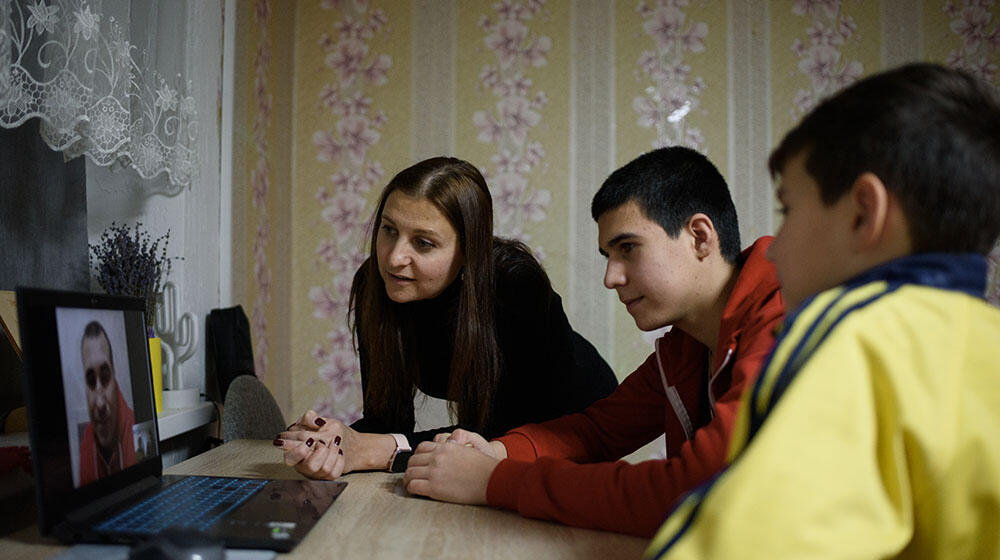Once a close-knit Ukrainian family, Svetlana, Ruslan, and their two boys now find themselves spending the holidays apart due to the war that tore their country apart. Before the war, their family lived in a cozy bedroom community in Odesa. Svetlana worked as a speech therapist, Ruslan worked in manufacturing, and the children went to school. They had wonderful plans for the future, and they were to be realized. The war forced them to separate, with Svetlana taking their two sons, Mark and Oleg, first to Zatoka and then to neighboring Moldova, while Ruslan remained in Odesa.
The first months of the war they lived near Zatoka, with Ruslan's relatives. Zatoka is home to one of the most important transport hubs in the Odesa region, connecting Ukrainian Bessarabia with the rest of Ukraine - a road and railway bridge over the Dniester Liman. In late April, this bridge was regularly pounded with rockets: "It was several nights in a row,” remembers Svetlana. “It worsened to the point where we woke up already sitting up - I opened my eyes, I was already sitting up. Everything inside was pounding. We decided that it shouldn't go on like this and brought children to Moldova.”
Life in Chisinau was far from easy for Svetlana and two teenage boys, aged 15 and 11. They now live in a cramped room in a refugee center, facing numerous challenges and uncertainties. Svetlana had to step into the role of both mother and father, trying her best to provide emotional support and guidance to her children. It was a personal growth journey for her, but she couldn't help but feel the weight of the separation from her husband Ruslan. “I don't know about Ruslan, but I felt the gap very strongly because Ruslan was a very engaged father,” says Svetlana. “And now I've become a “dad”, too. The most important thing is that I was the strict one, and my husband always tried to talk to the boys in a calm state and find a common ground. I was a ‘bad cop’, and now I have to also play Ruslan's role. It continues to be a personal growth for me. I saw that I could be different, but at what cost...,” she adds.
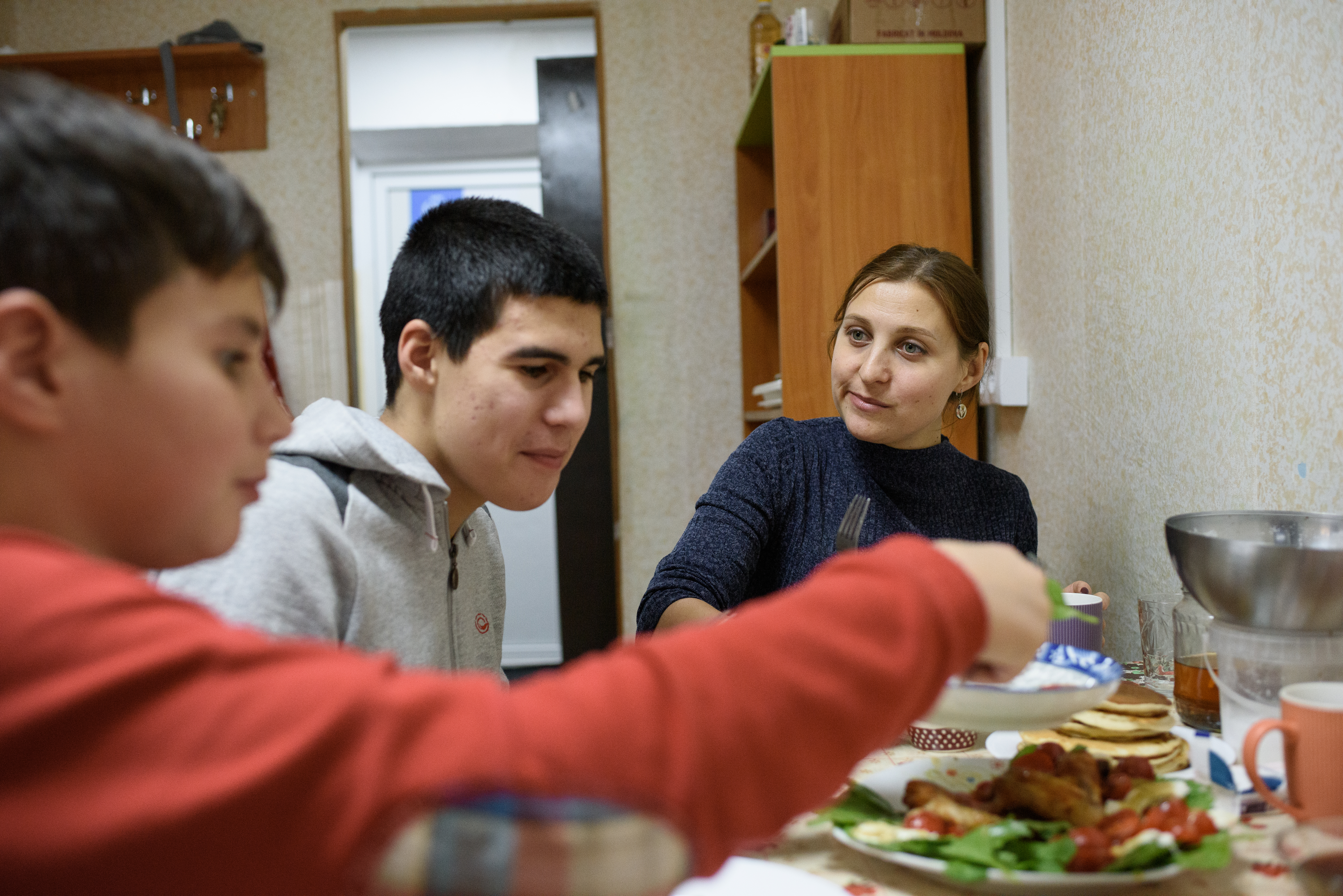
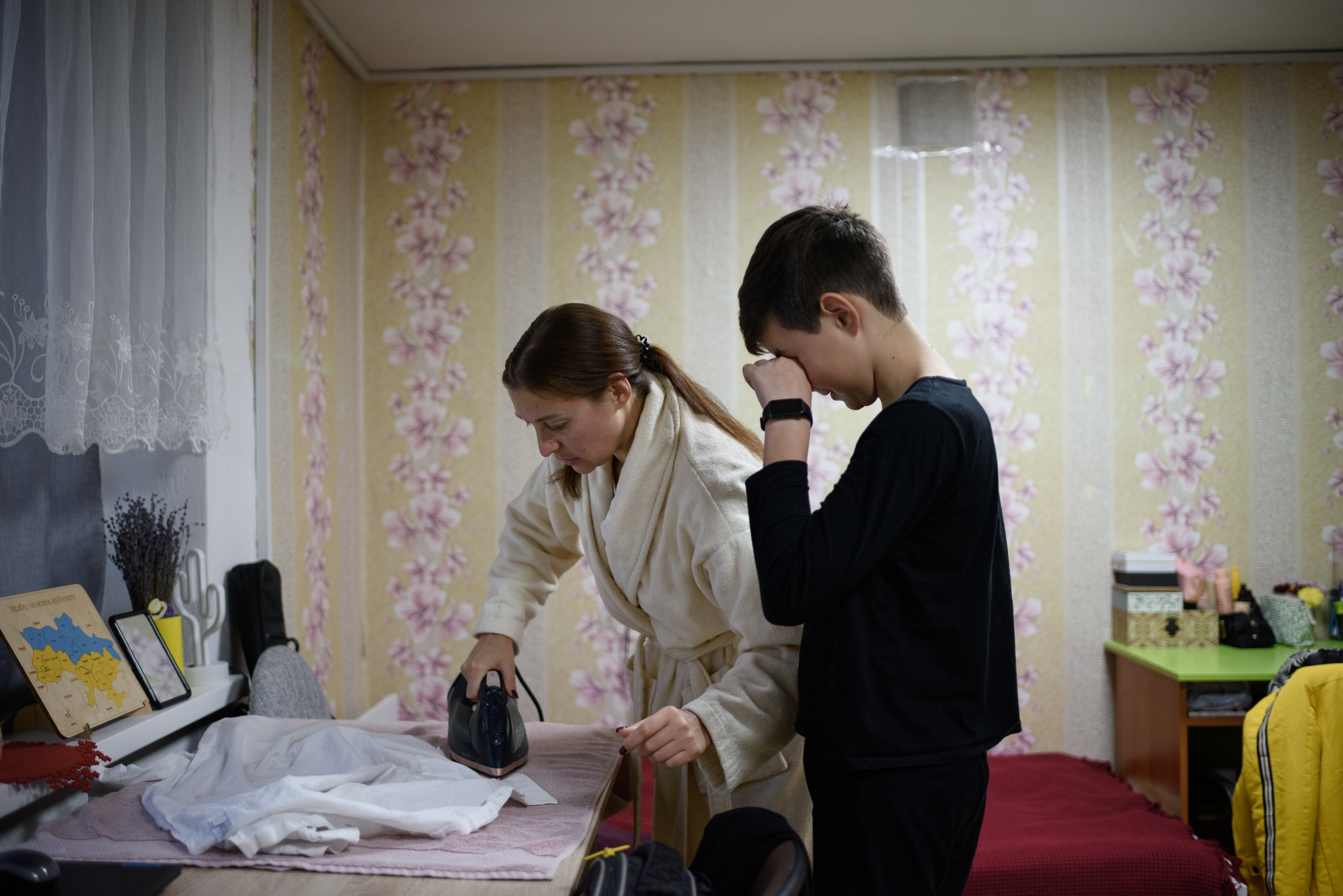
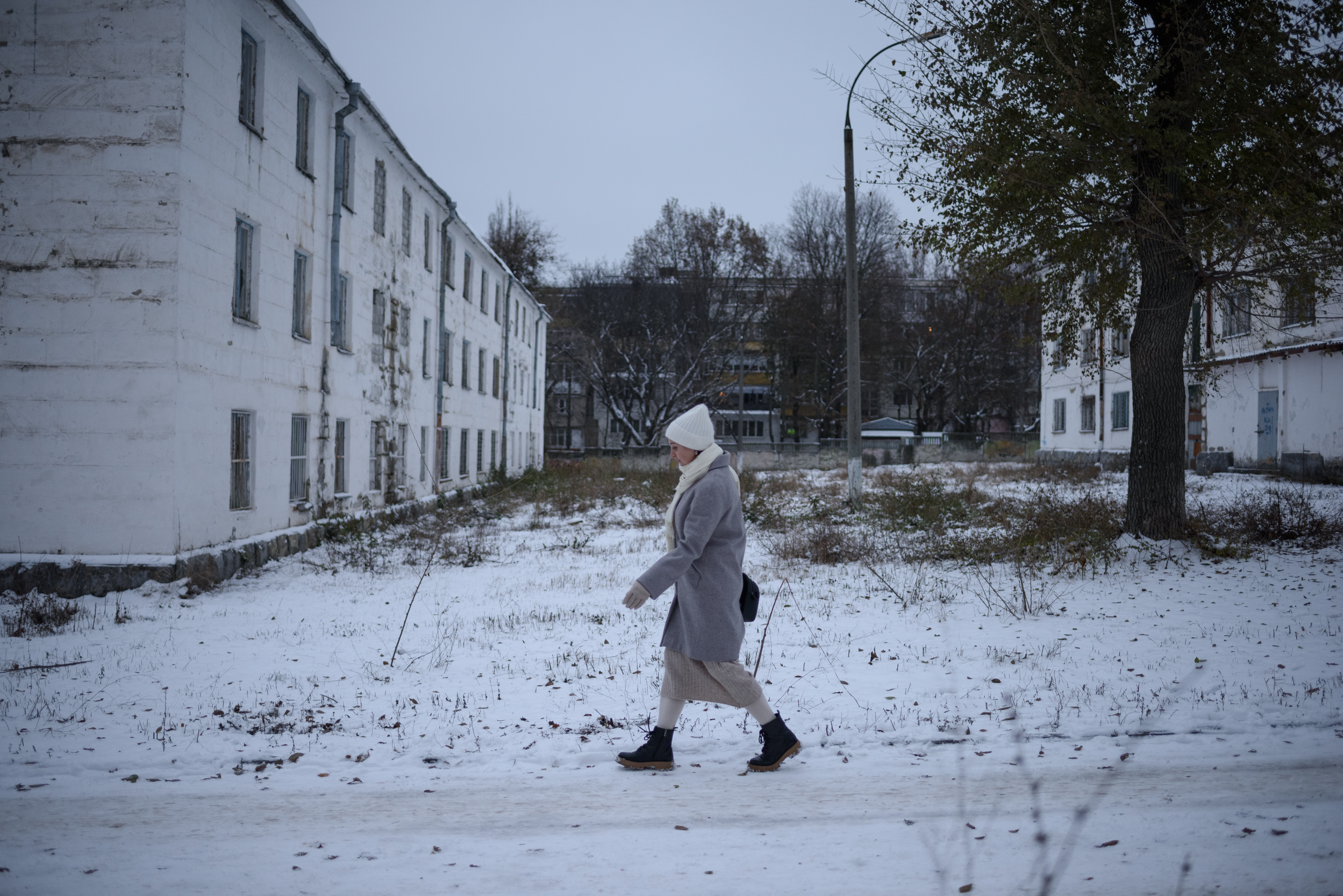
Meanwhile, Ruslan faced his own struggles in Odesa. He hasn’t lived alone for 16 years, and the absence of his family weighed heavily on him. To combat the loneliness, he immersed himself in activities like painting and attending psychological support courses. "What upsets me the most is that I'm not in my children's lives,” he shares. “My boys are growing up, they have a very important and difficult period in their lives, and I am here in Odesa." Phone and video calls became their lifeline, but it was not enough to replace the presence of their loved ones.

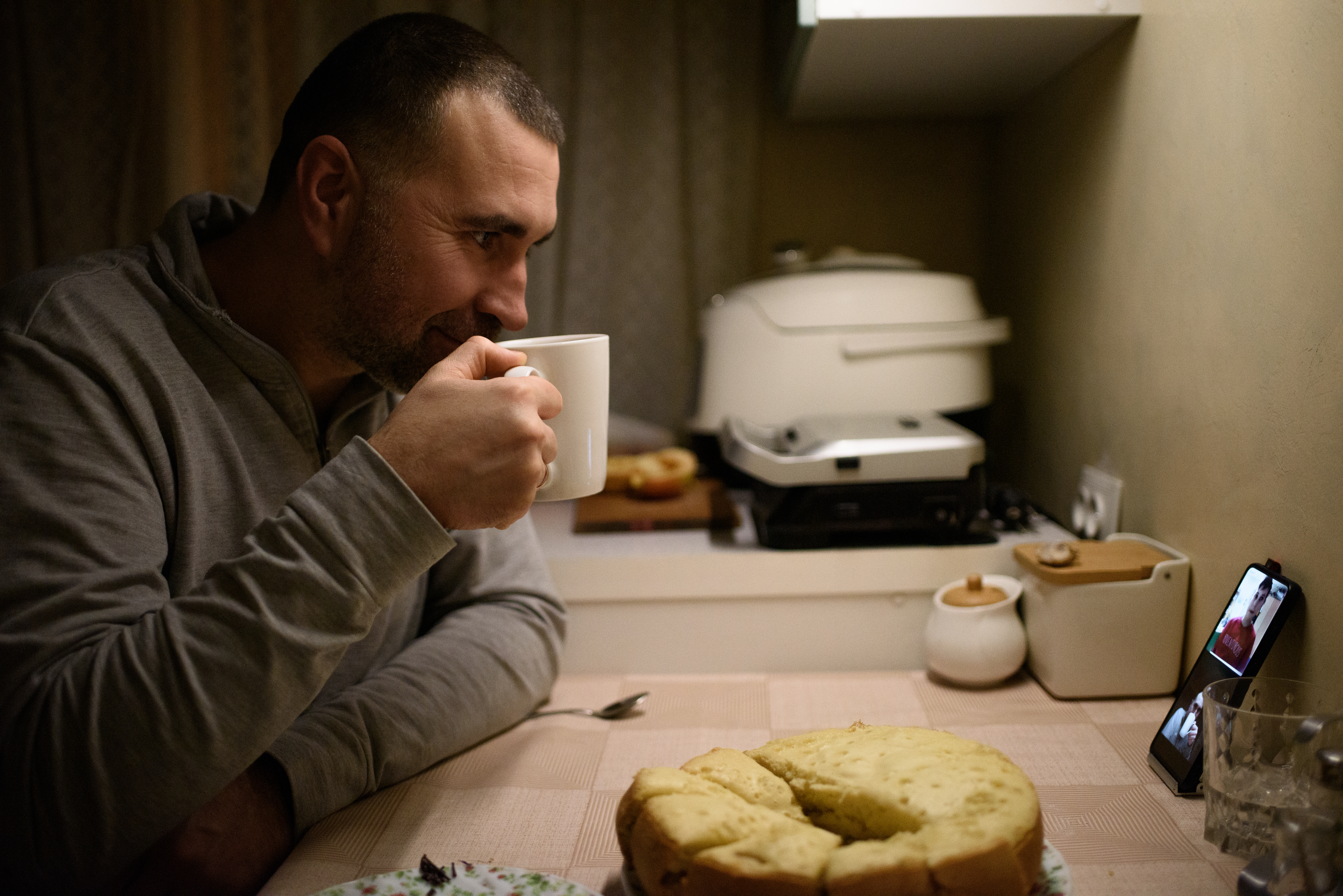

The holiday season was particularly challenging for the family. Traditionally a time for togetherness and celebration, they found themselves celebrating separately. Svetlana and the boys tried to fill the void by sending pictures and messages to Ruslan, but the bitterness of their physical separation was hard to ignore. "Our family has been celebrating holidays without my husband, our dad. It was painful at first. I captured every moment and used to send him photos every second. The kids snorted at first at my constant proposal to pose for a photo, but now they are used to it and are even willing to stop, take a picture and move on. On his (Ruslan's) birthday, he was alone. There is bitterness on days like that," shares Svetlana.
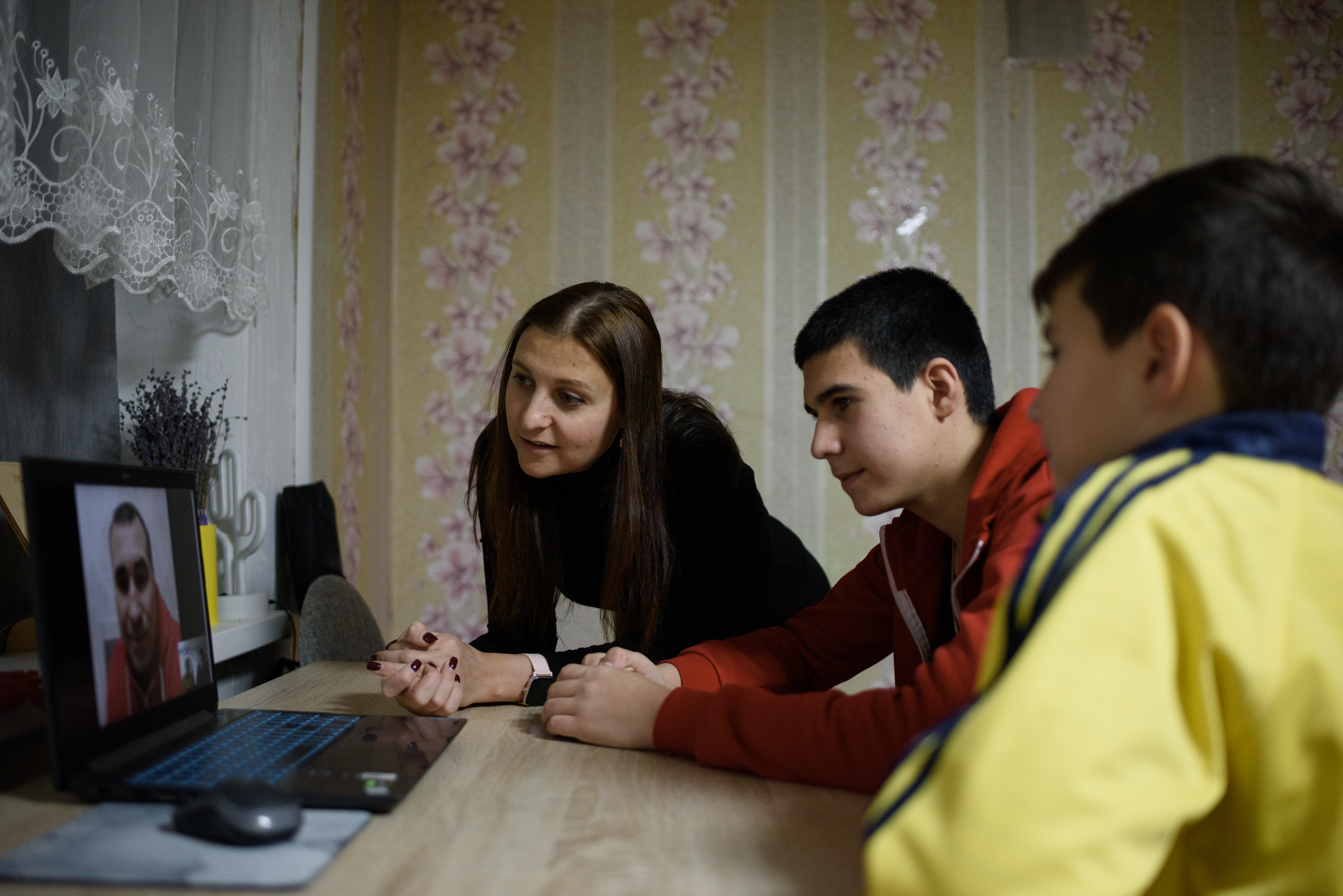
Despite the hardships, the family learned to adapt and grow stronger through their experiences. The children matured beyond their years, understanding the difficulties their parents faced and learning to appreciate the value of family. Svetlana proudly shares that "the children have matured a lot in these two years, especially 15-year-old Oleg. Yes, we have conflicts and misunderstandings due to our intergenerational differences, but in the end, when the storm has subsided, I sit down with him to talk, to discuss his behavior, and he says: 'Yes, I understand, I messed up, I'm sorry, but next time you also stop pressuring me.’ And I accept." Svetlana continues to teach them not to succumb to the worst circumstances and to strive for better.
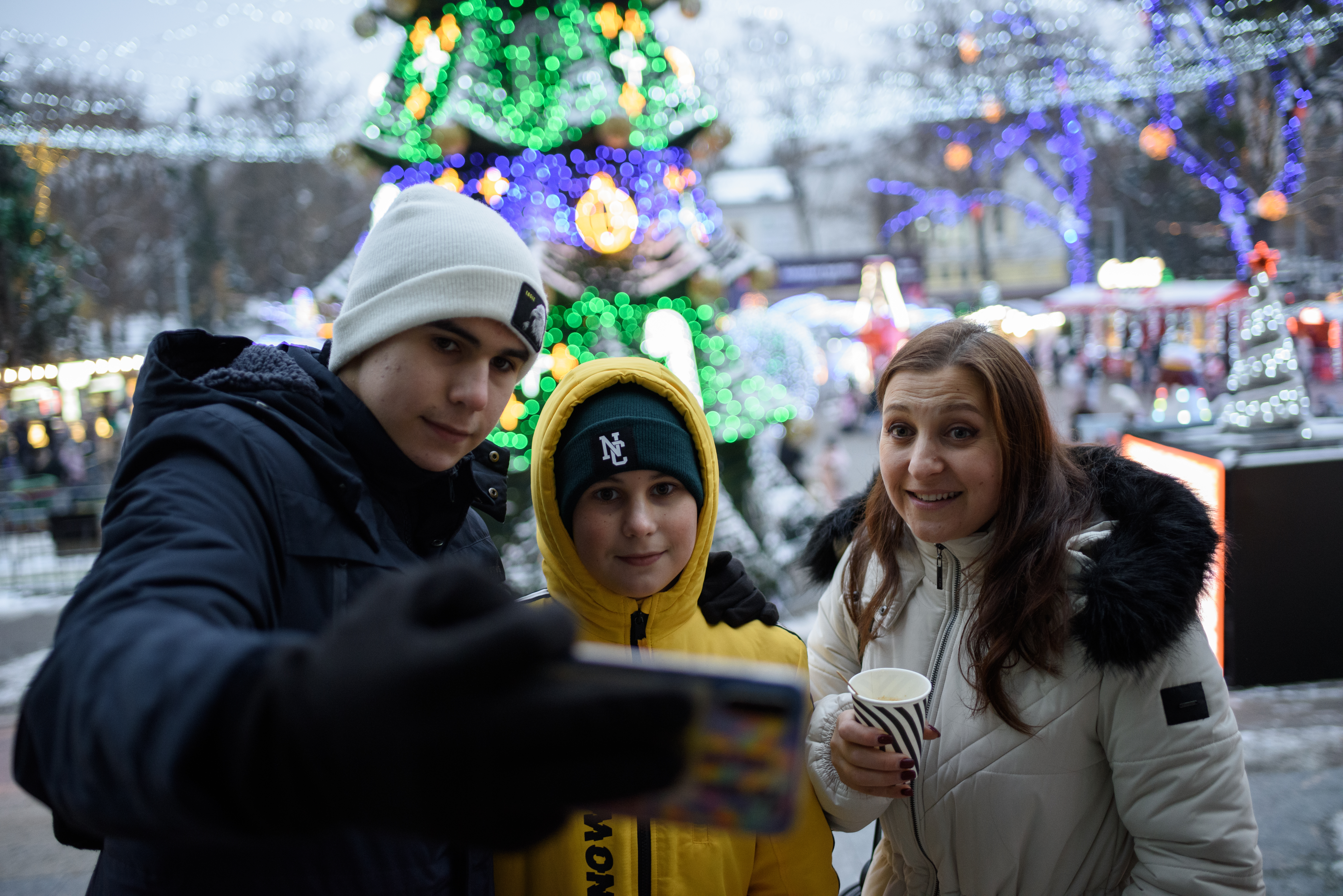
The war had forever changed their world, and they wondered what the future held for them. Stepping out of their comfort zones now seems a usual thing. Svetlana has already found a job as a speech therapist in Chisinau and a visitor of a UNFPA Safe Space. Boys go to school and Oleg is a volunteer at the UNFPA-partner Millennium Youth Centre, co-financed by the European Union.
They realized that distance, though difficult, had the power to connect their family even better. "I didn't expect that distance could make a family stronger. Usually, it always alienates. I understand that as long as you live, you have to learn so much. I used to realize it, but I didn't feel it. It's great that you're growing. It helps to change your thinking and understand other people. Take everyone into account, including yourself," says Svetlana.
As they navigated their separate paths, the family held onto hope for a brighter future. They yearned for the day when they could reunite and celebrate holidays together once again. Until then, they cherished the moments they have now and rely on love, understanding, and communication to bridge the physical distance between them.
Explore their story through a full slideshow: https://moldova.unfpa.org/en/separated-war-refugee-familys-holidays-apa…

